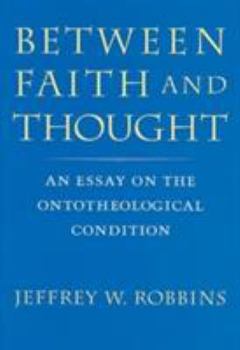Between Faith and Thought: An Essay on the Ontotheological Condition
(Part of the Studies in Religion and Culture Series)
The ontotheological problem is perhaps the defining issue of contemporary philosophical theology, as it reveals that dimension of thought where reason and faith are indivisible and indissoluble--where philosophy recognizes its faith in reason and theology realizes its responsibility to thought.
In Between Faith and Thought Jeffrey W. Robbins argues that ontotheology, far from being a problem to overcome, is instead the very condition of being and thought. Further, he asks, how might this ontotheological condition be thought of as a resource for creative and responsible engagement with the world? Robbins calls for a radical rethinking of contemporary philosophical theology, based upon the ethical insights of Emmanuel Levinas, that effectively redraws the boundaries between philosophy and theology and suggests an alternative relationship between faith and thought.
Structured as a dialogue between the Continental philosophical tradition represented by such thinkers as Husserl, Heidegger, Kristeva, and Ricoeur and the contemporary theological tradition expressed by such figures as Barth, Bonhoeffer, and Marion, Robbins's lucidly argued work models a new, more cooperative and less antagonistic style for contemporary philosophical theology. It also engages various facets of contemporary society to show how this new style and understanding of philosophical theology might function as a critical and constructive tool of cultural analysis.
Studies in Religion and Culture
Related Subjects
Christian Books & Bibles Education & Reference Religion Religion & Spirituality Theology




